Review: THE FLYING DUTCHMAN at Metropolitan Opera
The Flying Dutchman returns to the Met
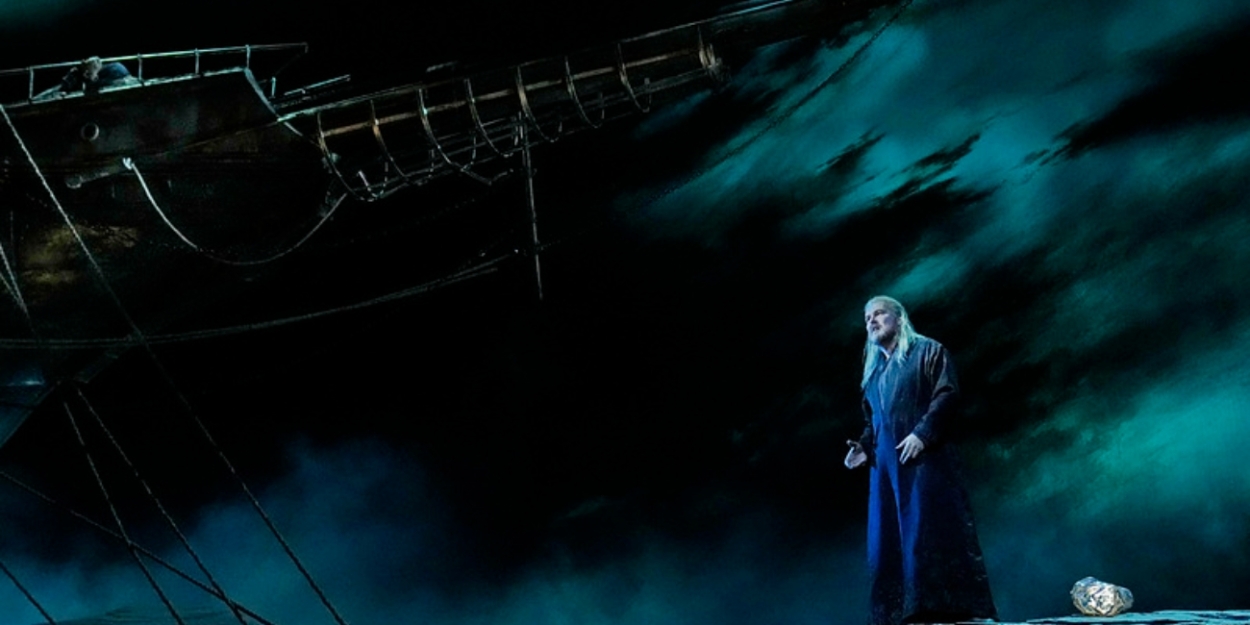
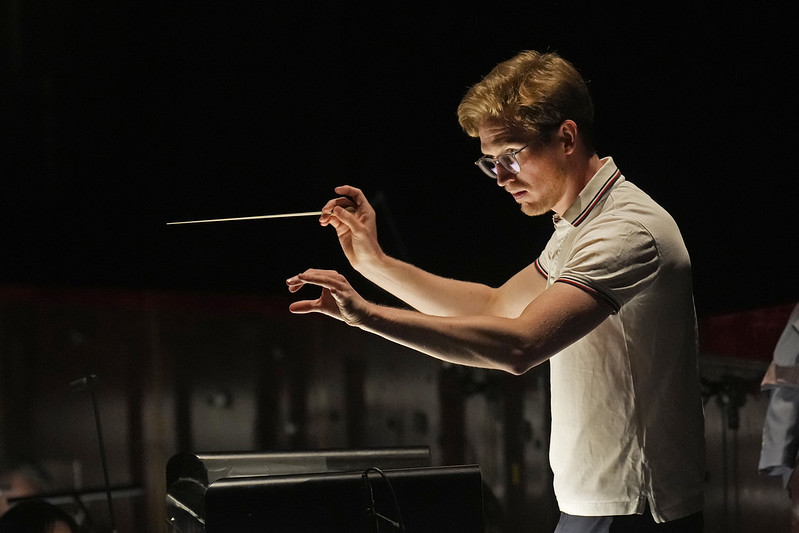
Thomas Guggeis, the young German conductor making his Met debut, is Kapellmeister at the Staatsoper Berlin and the designated Generalmusikdirektor of the Oper Frankfurt; pretty impressive for one who has yet to hit his 30th birthday! His Met debut was justly anticipated, as across Europe he is known as something of a Wagner and Strauss specialist. His performance was well-paced and well-colored and energetic. The score provides for enormous surges of energy and power, and the orchestra was certainly up to the task, but Guggeis’ rendition while quite good, was perhaps a tad lacking in thrills – the magnificent Wagner bombast was a little timid and the quieter passages were lovely but just a bit bland. With time and more experience with this orchestra, one can safely expect some exceptional performances in the future.
His performance was hampered by a mediocre production that made the balance between singer and orchestra a continual high-wire act. Francois Girard’s direction often requires the singers to navigate great distances, from way up to way downstage within the same scene. Consequently, their respective volume levels varied greatly and though the conductor did his best to find the correct level of support, at several moments, there was too much or too little orchestra in the mix.
The production begins with some bland graphic projections the seem to have been leftover effects from “Close Encounters of the Third Kind” playing over the overture. We see Senta on stage in her bright red dress (looking quite a bit like a character in “The Hand Maid’s Tale”) performing some kind of indecipherable pantomime beneath a gigantic image of an eye.
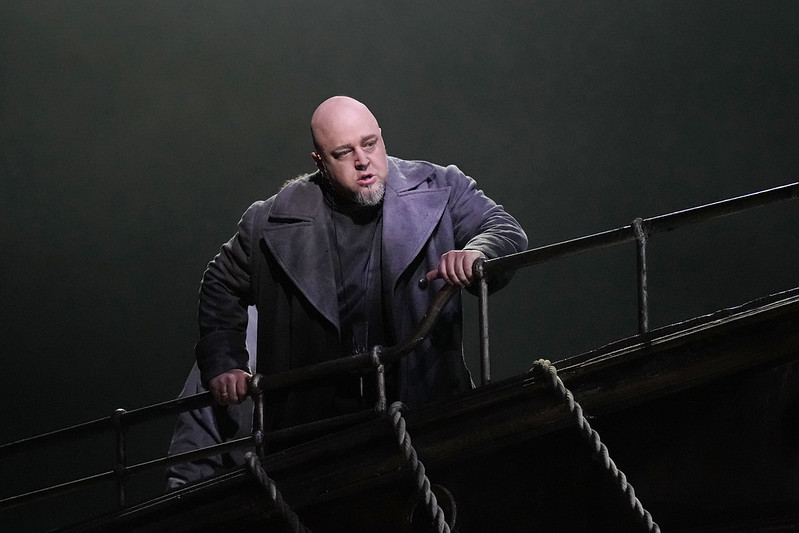
Thankfully, the principal singers were all first-rate and gave the evening an overall performance of great intensity and beauty.
Ukrainian bass, Dmitry Belosselskiy, sang Dalad with command right from the start, displaying a solid broad vibrato in his bigger moments and a softer more delicate sound when Daland’s uncontrollable desire for riches over-powers his concern for his daughter.
Elza Van den Heever was the star of the night. Her role debut was a great success. A first-class singing actress, she did her best to overcome the dramatic failings of the direction, which demands a certain “wooden-ness” to the characters. Her tone was creamy and shined in the high register and warm and velvety in the lower.
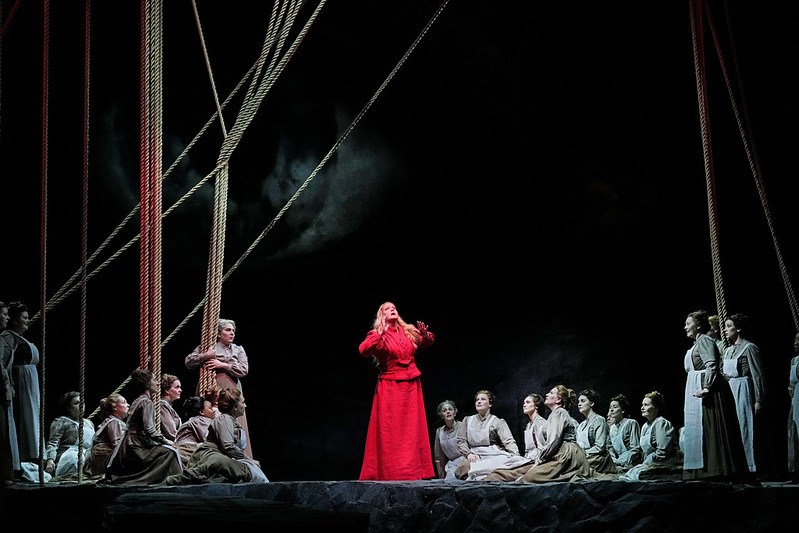
Her Act II aria, “Traft ihr das Schiff in Meer an” was intensely passionate – with the appropriate amount of spookiness. She navigated the broad range of the aria with consistently ample breath and without the harshness that plague so many Sentas. In short, she was entirely believable – no mean feat for such an archetypal character.
Generally speaking, any production sinks or swims based upon the success of its title character. Polish Bass-baritone Tomasz Konieczny had a great success in the Met’s revival of Wagner’s “Ring” a few seasons ago and it was clear that he’d be back soon. His Holländer was an interesting creation. The production pretty much precludes any chance of a dramatic tour-de-force, but the score still permits some opportunities for depth and pathos. His voice was at times big and brassy and his delivery highly nuanced, but periodically he displayed a bit of gruff barking. His Dutchman often displayed more energy than Weltschmerz, as he vacillated between fury and bitterness when revealing his accursed fate, and beautifully colored and detailed while revealing his hopefulness as his chance for redemption is revived.
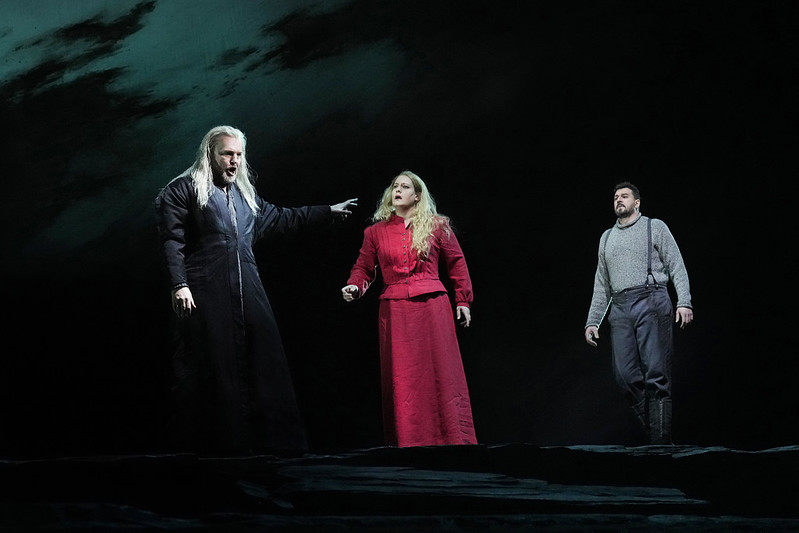
His performance was marred by a few inadvertently comical moments. Literally, the second before he began his “Die Frist ist um” (the time has come) monologue, a loud cell phone rang in the audience, which elicited a round of giggles. Regrettably, it was not the only moment that drew inappropriate laughter. In the first act, the Dutchman casts an enormous shadow against the mystical, mythical landscape backdrop, but the singer and his shadow needed a bit more rehearsal as their choreographed movements went comically astray, and eventually the shadow effect was simply dropped. The disconnect between the singer and his gigantic shadow sadly broke the dramatic tension of a critical moment.
Then during the Dutchman’s entrance in Act two – rising up threw the stage on an elevator, and startling Senta, drew a hearty laugh – once again destroying the moment’s dramatic tension.
Aside from a brief messy moment in the drunken revelry at the beginning of Act Three, the chorus, once again expertly led by Donald Palumbo (that guy should really get an Opera America Award) was magnificent from start to finish, showing again why they are the finest opera chorus in the world.
Act III was a dramatic mess. Even the widest suspension of disbelief was not enough to save it. There was no Dutch ship, no ghostly crew, and Daland’s crew stares and points ludicrously at nothing and acts terrified. The final trio finds the singers in a Mexican standoff, having to resort to the park and bark style of yore. Eric Cutler’s Erik singing “Save her! Save her!” to no one, while standing right next to Senta, creating another eye-rolling moment of dreadful stage direction.
The visuals of the finale were amazing. Brilliant video mapping of water overflowing the banks and rushing to the front of the stage provided a ravishingly active and dynamic visual. Unfortunately, it felt a little out of place after two-plus hours of static staging.
It may be an unpopular opinion but, Francois Girard is simply not the great opera director that Peter Gelb believes he is. Parsifal – his most successful production at the Met – was good but not really the great revelatory production that it seems to have been christened since. His recent Lohengrin, buoyed by a terrific cast and remarkable singing by the chorus, was mediocre. His Dutchman remains a complete mess. The hallmark of his productions are gorgeous visuals, beautiful tableaus, the kind that make for great still photography (and marketing materials) but the stage direction and dramatic core always seems to be an afterthought and the results middling at best.
Gelb’s championing of Girard goes back decades to their time together at Sony working (VERY successfully) on two wonderful films: “Thirty Two Short Films About Glenn Gould” and “The Red Violin.” His efforts in the operatic world are not up to the level of his film work. This reviewer hopes the next new Wagner production (Tannheuser?) will have a different creative team at the helm.
By and large, the production notwithstanding, this Dutchman is extremely enjoyable as the pluses outweigh the minuses. It’s only here for four performances this season, so if you need your Wagner fix, you’d better hurry!
-Peter Danish
Photos: Ken Howard
Reader Reviews

Videos

